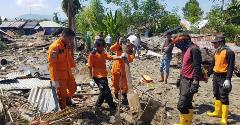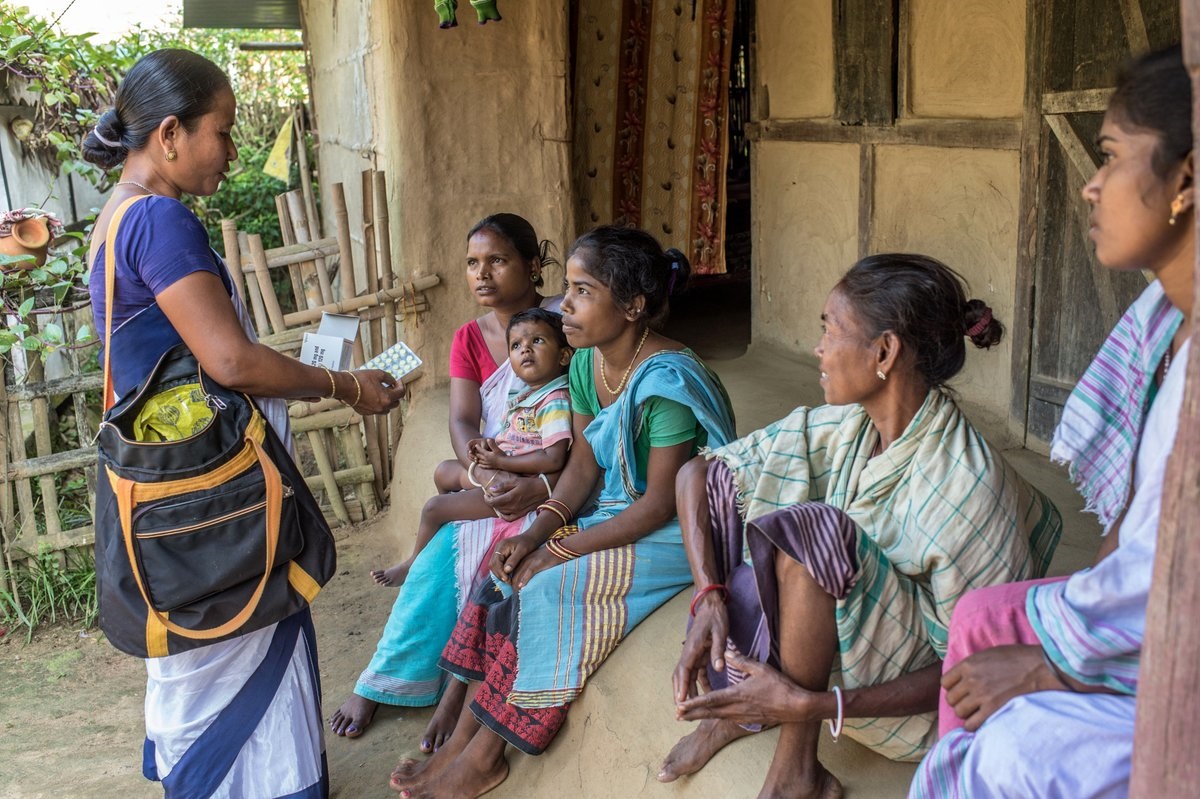by Dr Poonam Khetrapal Singh, WHO Regional Director for South-East Asia
On World Hand Hygiene Day, WHO is highlighting the urgent need for countries in the South-East Asia Region and across the world to rigorously implement hand hygiene at the point of health care delivery, accelerating progress made throughout the COVID-19 response. The theme of this year’s event – ‘Accelerate action together’ – emphasizes the critical role that strong and engaged communities of health and care workers, policy makers and civil society organizations must play in galvanizing action to prevent infections and antimicrobial resistance (AMR) in health care.
Globally, inadequate hand hygiene at the point of care is a major contributor to health care-associated infections (HAIs). HAIs affect an estimated 15 out of every 100 patients in low- and middle-income countries, killing around 1 in every 10 of those affected. They are a major cause of AMR, which occurs when bacteria, viruses, fungi and parasites change over time and no longer respond to medicines, making infections harder to treat and increasing the risk of disease spread, severe illness and death.
Inadequate hand hygiene in health care is primarily caused by limited awareness of and access to safe water, sanitation and hygiene (WASH) in health care facilities. Globally, 1 in 8 health care facilities has no water service, one in 5 has no sanitation service, and one in 6 has no hand hygiene facilities at the points of care. At present, six countries of the Region ensure that at least 60% of health care facilities provide basic WASH services, and the same number of countries are implementing the WHO/UNICEF WASH FIT tool, which all countries should urgently adopt.
Momentum continues to build, in accordance with the Region’s Flagship Priorities on achieving universal health coverage (UHC), preventing and combating AMR, and accelerating reductions of maternal, neonatal and under-five mortality. Since 2016, all countries of the Region have implemented the Region’s Strategy for Patient Safety 2016–2025, which covers all core aspects of quality of care, patient safety and infection prevention and control (IPC). The Strategy is aligned with the Global Patient Safety Action Plan 2021–2030.
Throughout the COVID-19 response, key stakeholders in the Region participated in an array of WHO-supported IPC trainings, as well as a Regional consultation aimed at aligning key interventions with the Global Patient Safety Action Plan. In October 2022, WHO conducted a Regional capacity-building workshop on WASH, climate resilience and the environmental sustainability of health care facilities. Actionable guidance was provided on implementing the WASH FIT tool and the Eight Practical Steps to Achieve Universal Access to Quality of Care.
Across the Region, countries continue to intensify action to improve quality of care, patient safety and IPC at the primary health care (PHC) level, in line with the recommendations of another WHO-supported meeting in October 2022, as well as the Region’s overall focus on reorienting health systems towards quality, accessible, affordable and comprehensive PHC to build health system resilience and achieve UHC.
Today, WHO has several messages. First, to health and care workers: Perform hand hygiene at the point of care, when it is needed, according to the WHO ‘5 Moments for Hand Hygiene’ and using the appropriate technique. Second, to IPC practitioners: Lead the way for clean hands, providing actionable resources and feedback to health and care workers for immediate improvement.
Third, to policy makers: Invest in hand hygiene as a priority patient safety intervention, ensuring dignity of care and increasing health care efficiency. Fourth, to people who access health care: Observe hand hygiene in health facilities and join WHO’s global Hand Hygiene for All initiative, which highlights how everyone, everywhere can promote hand hygiene in schools, workplaces and other institutional settings. Increased society-wide uptake of adequate and regular hand hygiene – including in the home – will reduce morbidity from a range of communicable diseases, not least diarrhoea and respiratory infections.
In the shadow of the COVID-19 crisis, Region-wide improvements in hand hygiene must be sustained and accelerated. For that, communities of actors in health care and civil society must come together to identify gaps, challenges and opportunities at the point of care, with a focus on avoiding duplication and fragmentation, and maximizing resource efficiency. Operational research should support these endeavours and will also help countries develop and maintain fully costed hand hygiene roadmaps.
On World Hand Hygiene Day, WHO reiterates its commitment to ‘Accelerate action together’, in all countries of the Region, to implement hand hygiene at the point of health care delivery, for fewer HAIs, reduced AMR, and safer, more effective and efficient health care facilities for all.







